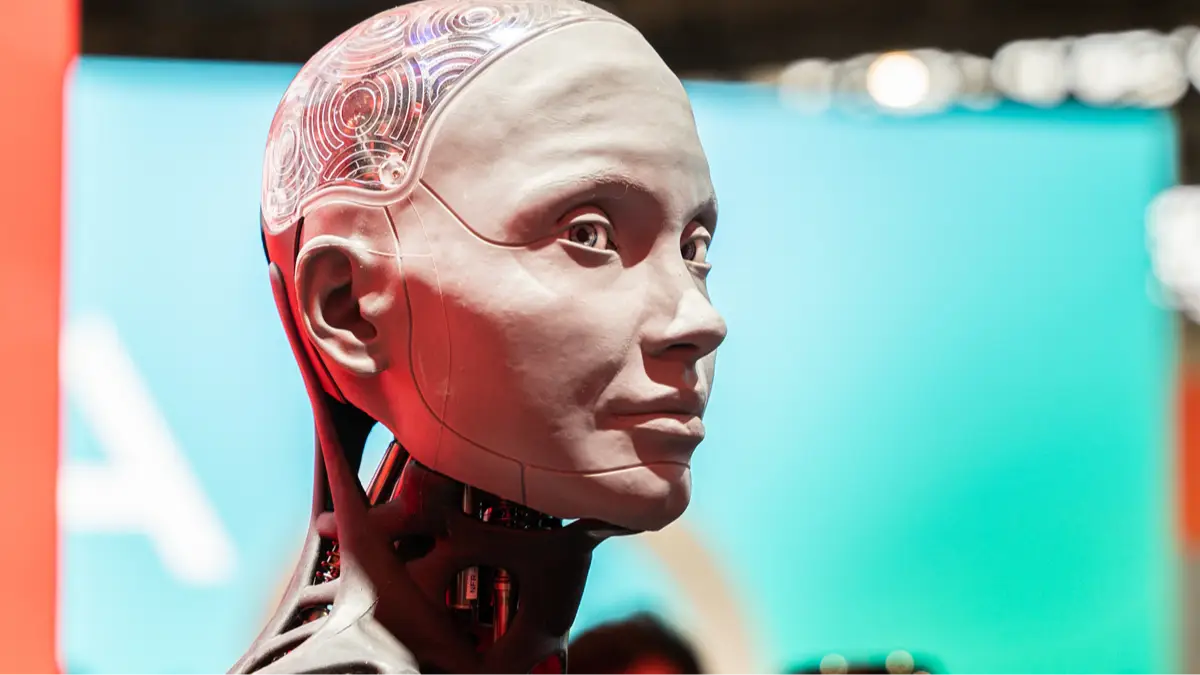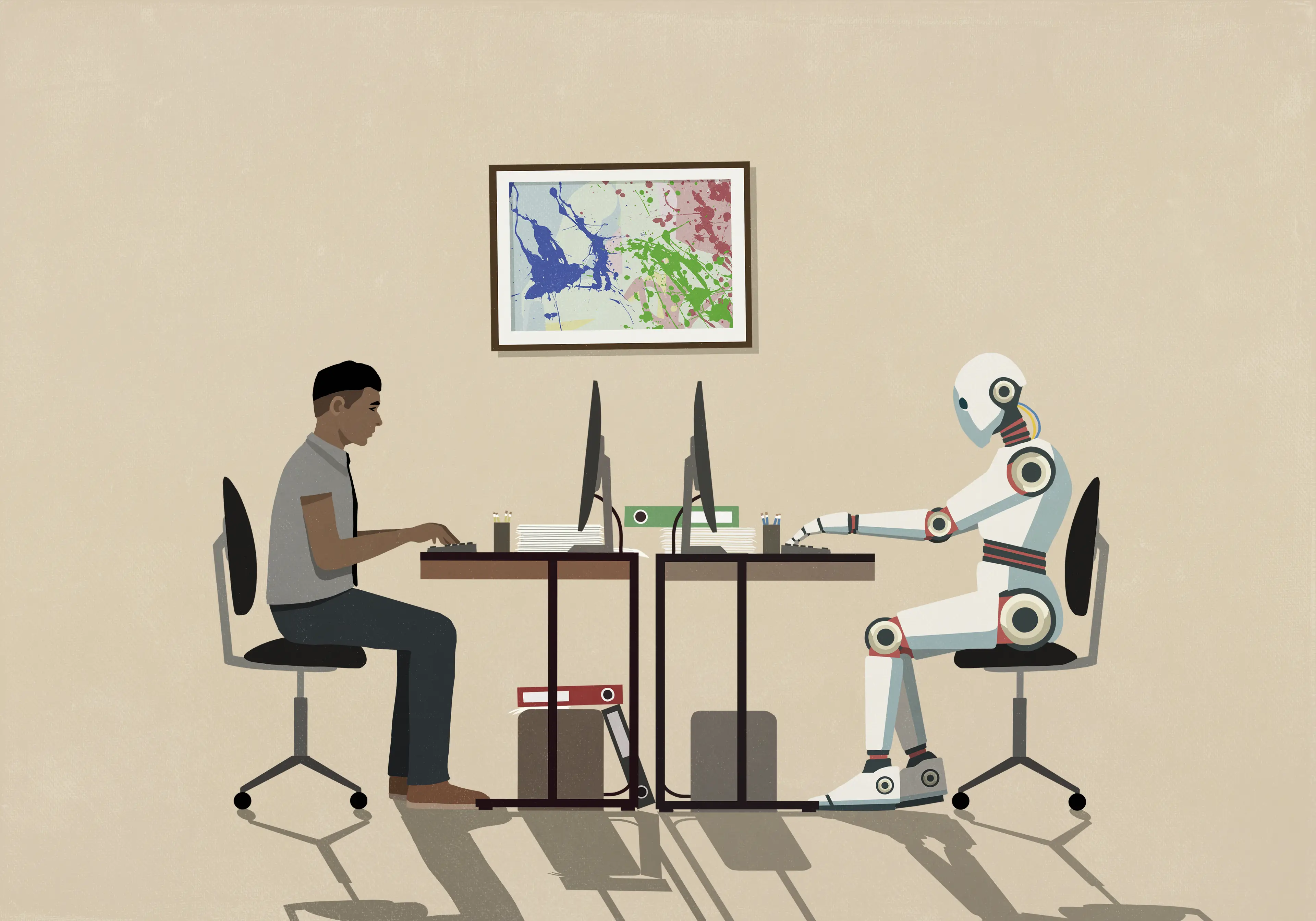
As every day brings more news about the advancement of AI, to a decidedly mixed reception, many fear that their job will be replaced.
Its advocates trumpet AI as the future, opening new opportunities for maximizing productivity, or 'reading' 100 books a week by skimming an AI summary of War and Peace.
But critics have a lot of concerns about the technology, including its potential use to generate deepfake videos of people doing something they've never done, such as crimes or adult videos, the environmental impact, and 'dead internet' theory, where all engagement online is just AI talking to itself.
College professors are already expressing concern over the use of generative AI in assignments, pointing out that students actually doing the thinking is the important bit, not the finished product.
Advert
But there's one thing which many people are worried about in the wider world.

This is, of course, the threat that AI is likely to pose to a lot of jobs in the not-too-distant future.
Whether it's self-driving cars, large language models, and even medicine, there are a lot of jobs which are likely to be at risk from the technology.
While many are at risk, expert Robert Phelps has shared a few roles which might be less at risk from being taken over by AI, at least completely.
That said, Phelps did have one big caveat, saying: "It’s difficult to say exactly what jobs will be safe from AI forever, as there are so many that are becoming automated that might not have been predicted."
So what are the jobs which may be less at risk than you might think?
One type is a job which requires empathy.

Phelps said: "Whereas jobs in nursing and pharmacy could be at risk, mental health professionals and councillors need human connection, trust, and empathy that cannot be replaced by AI."
You would think that nursing would also ideally require 'human connection, trust, and empathy'. I, for one, am not sure I fancy being cannulated by a robot.
That's not it, though, Phelps explained: "Emergency service workers such as paramedics and firefighters work in unpredictable environments, and their physical presence and judgement are needed."
There's one point that may surprise you as well, with Phelps saying: "It’s often thought that the creative industry, and roles in writing, design, and music, are at risk, but although AI can generate content, real creativity is truly necessary to create something original."
Explaining the principle behind what jobs may be more at risk, he said: "AI can replace tasks, but it can’t really replace people. It can help with efficiency, and tedious and repetitive tasks, but this leaves you free to focus ‘soft skills’ such as creativity, communication, ethics, and critical thinking, and these soft skills will become more valuable than ever."
Unfortunately, some jobs are at a higher risk, with 44 jobs being deemed as the most at risk of being replaced.
This was based on a paper released by OpenAI called 'Measuring the performance of our models on real-world tasks', which looked the 'win-rate' of AI vs humans on tasks and measured which jobs had the highest rate.
The results indicated that some jobs were at an especially high risk.
AI win rate on tasks vs. humans:
- Counter and rental clerks: 81%
- Sales managers: 79%
- Shipping, receiving, and inventory clerks: 76%
- Editors: 75%
- Software developers: 70%
- Private detectives and investigators: 70%
- Compliance officers: 69%
- First-line supervisors of non-retail sales workers: 69%
- Sales representatives, wholesale and manufacturing, except technical and scientific products: 68%
- General operations managers: 67%
- Medical and health services managers: 65%
- Buyers and purchasing agents: 64%
- Personal financial advisers: 64%
- Administrative services managers: 62%
- Customer service representatives: 59%
- First-line supervisors of retail sales workers: 59%
- First-line supervisors of production and operating workers: 58%
- Nurse practitioners: 56%
- Real estate brokers: 54%
- News analysts, reporters, and journalists: 53%
- Computer and information systems managers: 52%
- First-line supervisors of police and detectives: 49%
- Sales representatives, wholesale and manufacturing, technical and scientific products: 47%
- Lawyers: 46%
- Project management specialists: 42%
- Child, family, and school social workers: 42%
- Medical secretaries and administrative assistants: 42%
- Securities, commodities, and financial services sales agents: 42%
- First-line supervisors of office and administrative support workers: 41%
- Financial investment analysts: 41%
- Recreation workers: 37%
- Registered nurses: 37%
- Property, real estate, and community association managers: 34%
- Financial managers: 32%
- Producers and directors: 31%
- Audio and video technicians: 30%
- Concierges: 29%
- Order clerks: 28%
- Real estate sales agents: 27%
- Pharmacists: 26%
- Accountants and auditors: 24%
- Mechanical engineers: 23%
- Industrial engineers: 17%
- Film and video editors: 17%
Topics: News, Technology, US News, World News, Artificial Intelligence
